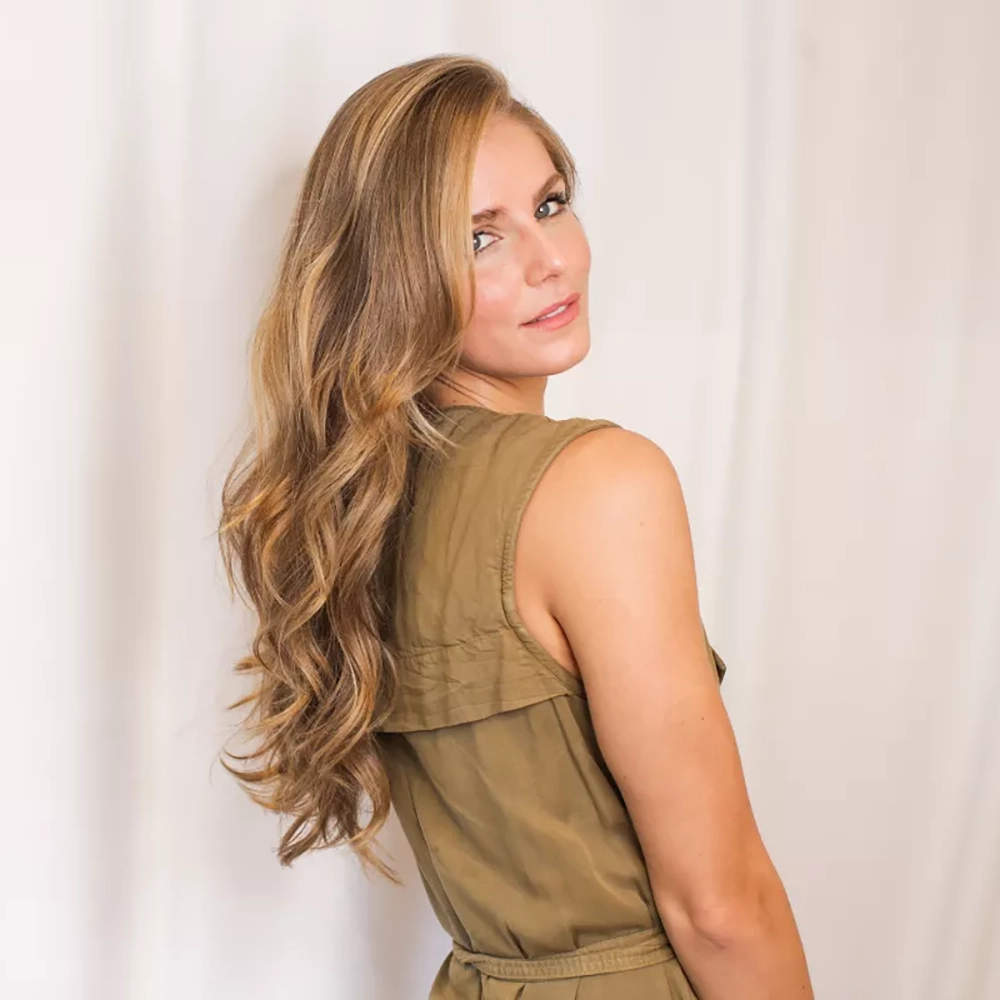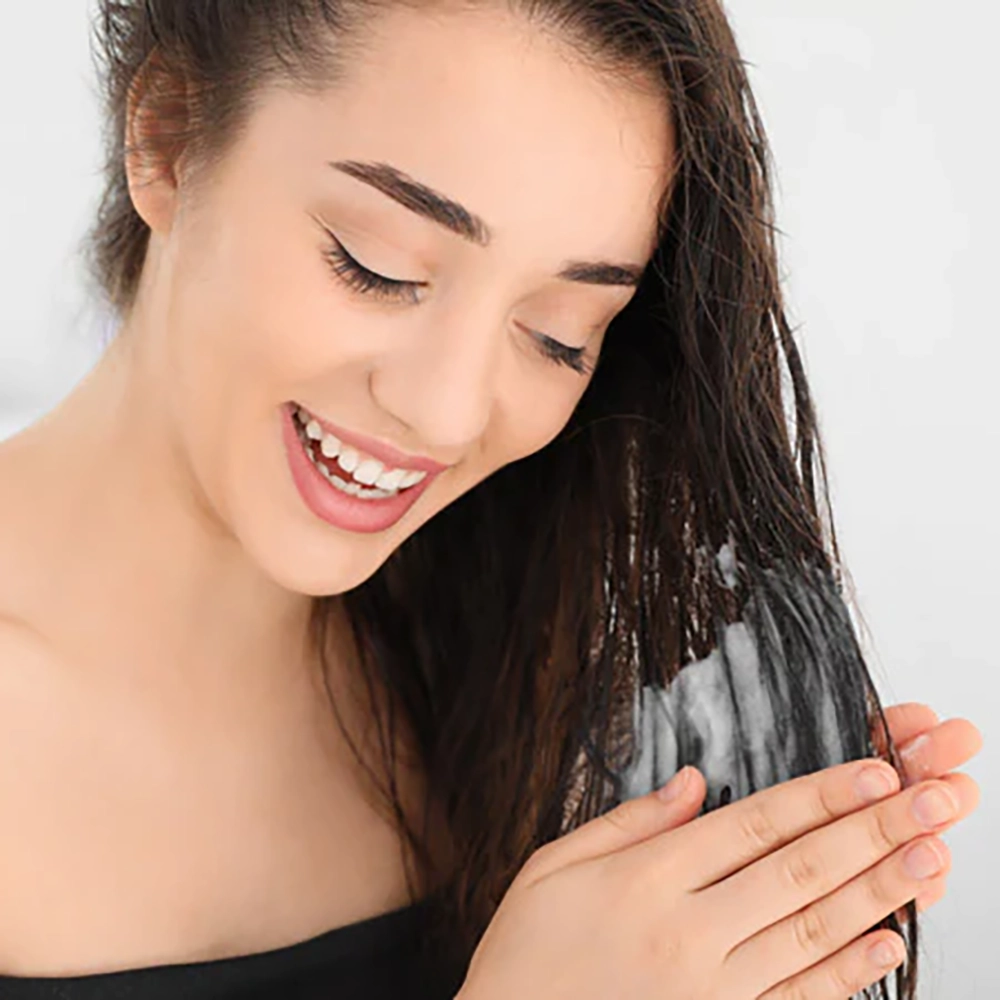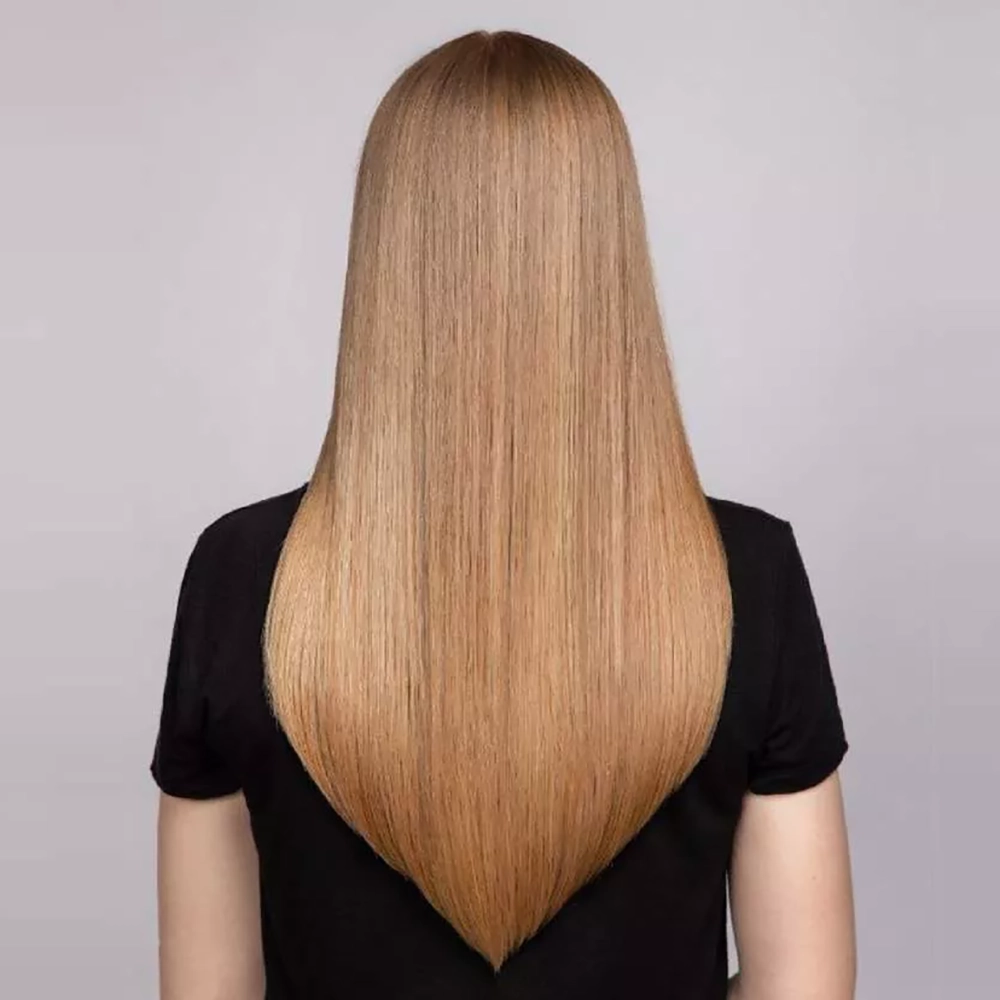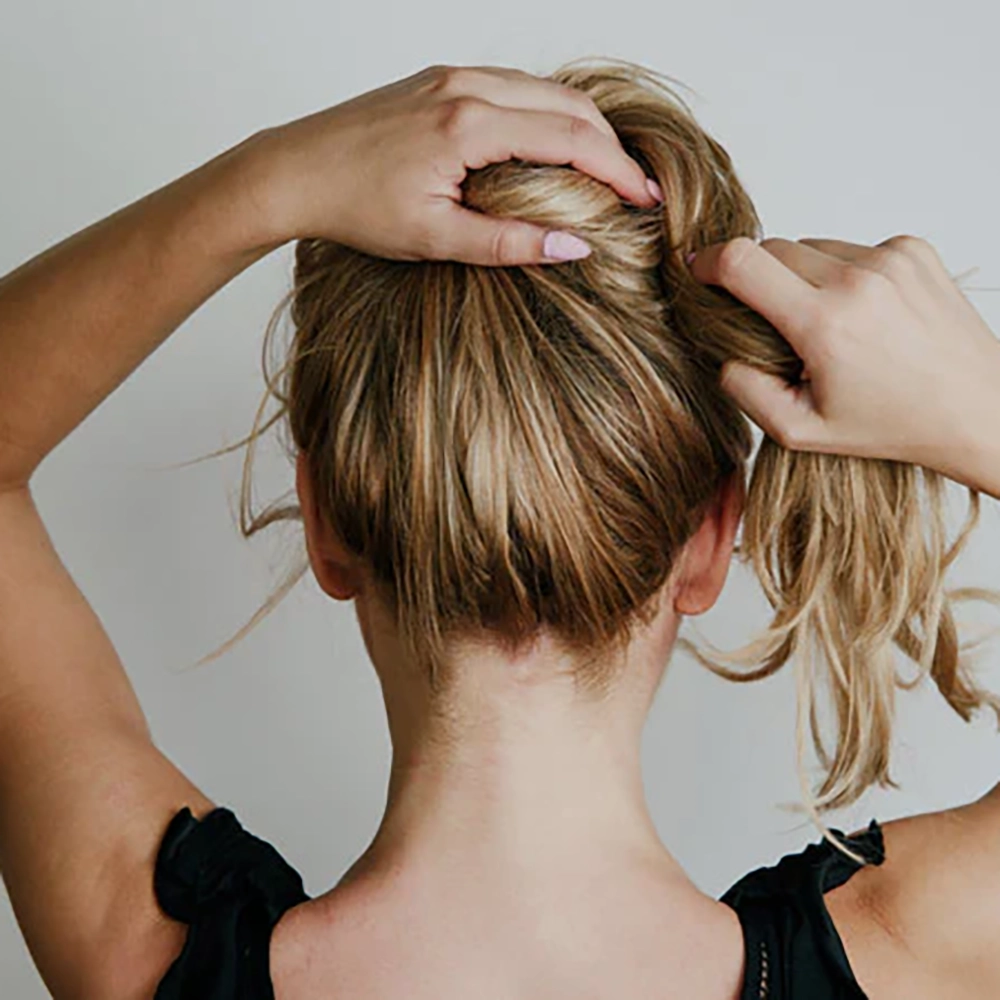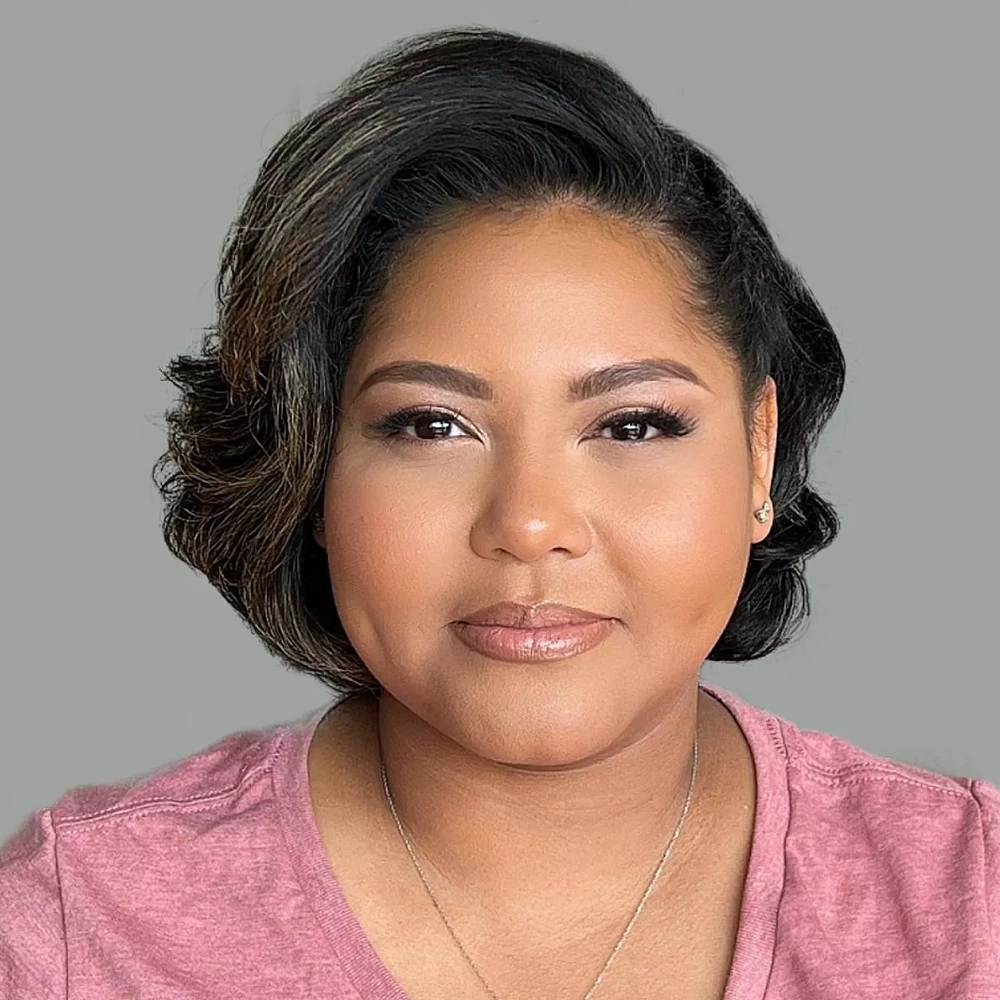The Benefits of Maintaining Long Hair
There are numerous benefits to maintaining long hair. Not only does it contribute to a unique and beautiful appearance, but it also provides several practical advantages. One of the main benefits of long hair is its versatility. The length allows for various styling options, such as braids, updos, and curls. It also provides an opportunity for self-expression through different hair accessories. With long hair, you can experiment with different looks to suit your mood and occasion.
Another advantage of having long hair is the added protection it provides to the scalp and neck. The length of the hair acts as a natural barrier against the harmful effects of the sun’s UV rays. It can shield the scalp from sunburn and reduce the risk of skin cancer. Additionally, long hair can help to keep the neck warm during colder seasons, preventing heat loss and potential illnesses.
Furthermore, long hair can be a source of personal pride and confidence. The long locks serve as a symbol of femininity and beauty, enhancing one’s self-esteem. Taking care of long hair and maintaining its health requires discipline and commitment, making it a rewarding accomplishment for many individuals. The confidence that comes from having long, well-groomed hair can positively impact various aspects of life, including personal relationships and professional opportunities.
- Versatility in styling
- Protection against UV rays
- Warmth for the neck
- Sense of femininity and beauty
- Boost in self-esteem
| Advantages of Long Hair |
|---|
| Versatility in styling |
| Protection against UV rays |
| Warmth for the neck |
| Sense of femininity and beauty |
| Boost in self-esteem |
How to Properly Care for Long Hair
Long hair can be a beautiful and versatile accessory, but it also requires proper care to maintain its health and appearance. Whether you’ve been growing your hair out for years or you’ve recently decided to embrace the long hair trend, it’s important to establish a regular care routine to keep your locks looking their best. In this blog post, we will explore some essential tips and techniques for properly caring for long hair.
1. Shampoo and Conditioner: One of the most important aspects of proper hair care is using the right shampoo and conditioner. Look for products specifically formulated for long hair or those that target your specific hair concerns, such as dryness or frizz. Avoid harsh sulfates and opt for moisturizing formulas that will nourish and protect your strands. Don’t forget to thoroughly rinse out both the shampoo and conditioner to prevent product buildup.
2. Regular Trims: While it may seem counterintuitive to cut your hair when you want it to grow longer, regular trims are essential for maintaining healthy long hair. Trimming the ends every 8-12 weeks helps to remove split ends and prevent further damage, allowing your hair to grow longer and stronger.
3. Avoid Heat Damage: Excessive heat styling can cause damage and breakage, especially for long hair. Limit the use of hot tools such as straighteners, curling irons, and blow dryers. When using heat styling tools, always apply a heat protectant spray to minimize damage. Additionally, consider air-drying your hair whenever possible to reduce heat exposure.
4. Protect Your Hair: Long hair is more prone to damage from environmental factors such as sun exposure, wind, and pollution. Protect your hair by wearing a hat or scarf when spending time outdoors, especially during peak sun hours. You can also apply a leave-in conditioner or hair oil for extra protection and hydration.
5. Brush with Care: Long hair is more susceptible to tangling and breakage, so it’s important to brush with care. Use a wide-tooth comb or a brush specifically designed for detangling to gently remove knots and tangles. Start from the ends and work your way up to avoid pulling and causing unnecessary breakage.
6. Deep Conditioning Treatments: Treat your long hair to regular deep conditioning treatments to keep it soft, shiny, and nourished. Apply a deep conditioner or hair mask once a week, focusing on the mid-lengths and ends. Leave it on for the recommended time and rinse thoroughly for luscious locks.
| Do’s: | Don’ts: |
|---|---|
| – Use the right shampoo and conditioner for long hair. | – Use excessive heat styling. |
| – Get regular trims to prevent split ends. | – Brush aggressively or when your hair is wet. |
| – Protect your hair from sun and environmental damage. | – Skip regular conditioning and deep treatments. |
| – Brush your hair gently starting from the ends. | – Overdo it with styling products. |
Caring for long hair requires dedication and consistency, but the results are well worth it. By following these tips and incorporating them into your regular hair care routine, you can enjoy healthy, beautiful long locks that will turn heads wherever you go. Remember, each individual’s hair is unique, so experiment with different techniques and products to find what works best for you.
The Role of Genetics in Hair Length
Genetics play a significant role in determining many aspects of our physical appearance, including our hair length. While some individuals are blessed with naturally long locks, others may struggle to grow their hair past a certain length. Understanding the role of genetics in hair length can shed light on why some people have shorter or longer hair, and can help manage expectations when it comes to hair growth.
One of the key factors in hair length is the rate of hair growth, which is largely determined by our genes. Each hair on our scalp goes through a cycle of growth, rest, and shedding. The length of the growth phase, known as the anagen phase, varies among individuals and is determined by genetic factors. Some individuals may have a shorter anagen phase, resulting in slower overall hair growth and shorter hair length. On the other hand, those with a longer anagen phase tend to experience faster hair growth and subsequently longer hair.
Another genetic factor that influences hair length is the shape and size of hair follicles. Hair follicles produce and determine the thickness and texture of our hair strands. People with larger and wider hair follicles tend to have thicker hair, which can give the illusion of longer hair. Additionally, the shape of the hair shaft can affect how long the hair appears. For example, hair with a flatter shape tends to grow longer compared to hair with a round shape, which may appear shorter.
- Genetic factors determine the rate of hair growth and the length of the growth phase.
- The shape and size of hair follicles can affect hair thickness and the illusion of length.
- Understanding the role of genetics in hair length can help manage expectations for hair growth.
| Genetic Factors | Effect on Hair Length |
|---|---|
| Anagen Phase Length | Determines overall hair growth rate and potential length. |
| Hair Follicle Size and Shape | Influences hair thickness and how long the hair appears. |
Although genetics play a significant role, it’s important to note that other external factors can also impact hair length. These factors include overall health, diet, haircare practices, and styling routines. Certain medical conditions, medications, and hormonal imbalances can also affect hair growth and length.
In conclusion, the role of genetics in determining hair length is undeniable. Some individuals may be genetically predisposed to longer or shorter hair due to factors such as the length of the anagen phase and the size and shape of hair follicles. While genetic factors play a crucial role, it’s essential to consider and manage other external factors that can influence hair length. By understanding the genetic aspects of hair growth, individuals can set realistic expectations and make informed decisions regarding their haircare routine and styling choices.
The Impact of Diet and Nutrition on Hair Health
When it comes to maintaining healthy and luscious hair, many people focus on external factors such as using the right hair products or following a strict hair care routine. However, what we often overlook is the impact of diet and nutrition on our hair health. Just like our skin and overall well-being, our hair also requires proper nourishment from within to shine and grow strong.
The connection between diet and hair health is undeniable. Our hair strands are made up of a protein called keratin, which is produced by the hair follicles. Therefore, it is essential to consume an adequate amount of protein in our diet to ensure proper hair growth and strength. Foods rich in protein like eggs, seafood, lean meats, and legumes should be a regular part of our meals to give our hair the necessary building blocks.
Not only protein, but certain vitamins and minerals also play a vital role in maintaining hair health. For instance, vitamin A helps in the production of sebum, which is the natural oil that keeps our scalp moisturized. Including foods like carrots, sweet potatoes, spinach, and broccoli in our diet can provide a good dose of vitamin A. Similarly, vitamin E is known for its antioxidant properties, which can help protect our hair from damage. Nuts, seeds, and avocados are some excellent sources of vitamin E.
- Protein-rich foods like eggs, seafood, lean meats, and legumes
- Foods high in vitamin A like carrots, sweet potatoes, spinach, and broccoli
- Sources of vitamin E such as nuts, seeds, and avocados
| Benefit | Food Sources |
|---|---|
| Protein for hair growth and strength | Eggs, seafood, lean meats, legumes |
| Vitamin A for scalp health | Carrots, sweet potatoes, spinach, broccoli |
| Vitamin E as an antioxidant | Nuts, seeds, avocados |
In addition to these specific nutrients, maintaining a balanced and varied diet is crucial. A deficiency in certain vitamins and minerals like iron, zinc, and vitamin D can lead to hair problems like hair loss or dullness. It is advisable to consult a healthcare professional or a registered dietitian to identify any nutrient deficiencies and receive personalized guidance on improving your diet for better hair health.
Remember, just like our overall health, our hair health is also a reflection of what we eat. By incorporating nutrient-rich foods and maintaining a well-balanced diet, we can nourish our hair from the inside-out, promoting its growth, strength, and overall vitality.
The Psychological and Emotional Effects of Long Hair
Long hair often holds deep psychological and emotional significance for individuals. It is not just a hairstyle, but a statement of personal identity, cultural heritage, and individual expression. The decision to grow and maintain long hair can have a profound impact on one’s self-image, confidence, and overall well-being.
Firstly, long hair is often associated with femininity and beauty. Throughout history and across cultures, women with long, flowing locks have been heralded as symbols of power, sensuality, and femininity. This association can be deeply ingrained in the psyche of individuals, leading to a boost in self-esteem and confidence when their hair is long and well-cared for.
Secondly, long hair can serve as a form of self-expression and personal identity. In a world where conformity is often expected, long hair can be a way for individuals to differentiate themselves and assert their individuality. It is a visible form of self-expression that allows people to showcase their creativity and uniqueness.
- Cultural Significance: In many cultures, long hair holds great cultural significance and is seen as a symbol of heritage, tradition, and spirituality. For example, in Native American tribes, long hair is believed to be a source of power and connection to the spiritual world.
- Attention and Admiration: Long hair can attract attention and admiration from others, which can boost one’s sense of validation and self-worth. The compliments and positive comments received about long hair can offer a sense of validation and affirmation.
- Potential for Self-Expression: Long hair provides numerous opportunities for self-expression through styling, such as braids, updos, and intricate hairstyles. This allows individuals to showcase their creativity, personality, and style.
However, the decision to maintain long hair can also come with unique challenges and emotional effects. Long hair requires dedicated time and effort for maintenance, which can be both physically and emotionally demanding. The process of detangling, washing, and styling can become overwhelming, leading to frustration and stress.
| Psychological Effects | Emotional Effects |
|---|---|
| Increased self-esteem and confidence | Feelings of femininity and beauty |
| Boost in personal identity and self-expression | Validation and admiration from others |
| Desire for uniqueness and differentiation | Opportunities for self-expression through styling |
| Challenges and frustration in maintenance |
In conclusion, the psychological and emotional effects of long hair can be profound and varied. It can act as a source of empowerment, self-expression, and cultural significance. However, it also comes with its unique set of challenges and demands. Ultimately, the decision to maintain long hair is a personal one, and the emotional effects will differ from individual to individual. What remains constant is the power of long hair in shaping one’s sense of identity, confidence, and personal expression.
Long Hair Maintenance and Styling Tips
Having long hair can be both a blessing and a challenge. On one hand, it offers versatility in terms of styling options and can give you a glamorous and elegant look. On the other hand, it requires proper maintenance and care to keep it healthy and looking its best. In this blog post, we will discuss some essential maintenance and styling tips for long hair.
Maintaining Long Hair:
- Regular trims: Even though it may seem counterintuitive, trimming your long hair every 6-8 weeks is crucial for its overall health. Trimming helps to get rid of split ends and prevents them from traveling up the hair shaft, causing further damage.
- Gentle brushing: Long hair tends to tangle easily, so it’s important to use a wide-toothed comb or a brush with soft bristles to gently detangle your hair. Start from the ends and work your way up to minimize breakage.
- Deep conditioning: Long hair can often become dry and prone to breakage. To combat this, incorporate a deep conditioning treatment into your hair care routine once a week to restore moisture and strengthen your locks.
Styling Tips for Long Hair:
| Tip | Description |
|---|---|
| Use heat protectant | Before using any heat styling tools like straighteners or curling irons, apply a heat protectant spray to shield your hair from damage. |
| Try different braids | Braids are not only fashionable but also help to keep your long hair protected. Experiment with different braid styles like fishtail, Dutch, or French braids. |
| Avoid tight hairstyles | While updos and ponytails can be convenient, avoid creating them too tightly as they can put excessive strain on your hair follicles, leading to breakage and hair loss. |
By following these maintenance and styling tips, you can ensure that your long hair remains healthy, vibrant, and beautiful. Embrace the versatility that long hair offers and have fun exploring different styles!
Common Myths and Misconceptions about Long Hair
Long hair has always been associated with femininity, beauty, and youthfulness. However, there are numerous myths and misconceptions surrounding this coveted hair length. In this blog post, we will debunk some of the most common myths and shed light on the true facts about long hair.
Myth: Long hair is always healthier than short hair.
Contrary to popular belief, the length of your hair does not determine its health. Hair health depends on various factors such as genetics, overall hair care routine, and lifestyle habits. While long hair can give the illusion of being healthy, it is not immune to damage or breakage. In fact, longer hair tends to be more prone to split ends and dryness.
Myth: Cutting your hair makes it grow faster.
This is one of the most common misconceptions about hair growth. The truth is that hair growth occurs at the roots, not at the ends. Trimming your hair regularly can help prevent split ends and breakage, which in turn gives the appearance of healthier and longer hair. However, it does not actually make your hair grow faster. The rate of hair growth is determined by factors such as genetics, age, and overall health.
Myth: Long hair is harder to maintain.
While it’s true that long hair may require more time and effort to style and maintain, it does not necessarily mean it is more challenging to care for. With the right hair care routine and products, maintaining long hair can be just as easy as caring for shorter hair. Regular brushing, using protective hairstyles, and deep conditioning treatments can all contribute to keeping long hair healthy and manageable.
| Myth | Fact |
|---|---|
| Long hair always needs to be washed daily. | Frequency of hair washing should be based on individual hair type and scalp condition. |
| Long hair is more prone to hair loss. | Hair loss is not determined by hair length, but rather by factors such as genetics and overall health. |
| Long hair weighs down the scalp, leading to headaches. | Properly tying up or styling long hair can help alleviate any discomfort or strain on the scalp. |
These are just a few of the many myths and misconceptions surrounding long hair. It’s important to separate fact from fiction to better understand how to care for and maintain your long locks. Remember, every individual’s hair is unique, and what works for one person may not necessarily work for another. Consult with a professional hair stylist or trichologist to get personalized advice and guidance on how to keep your long hair looking its best.



